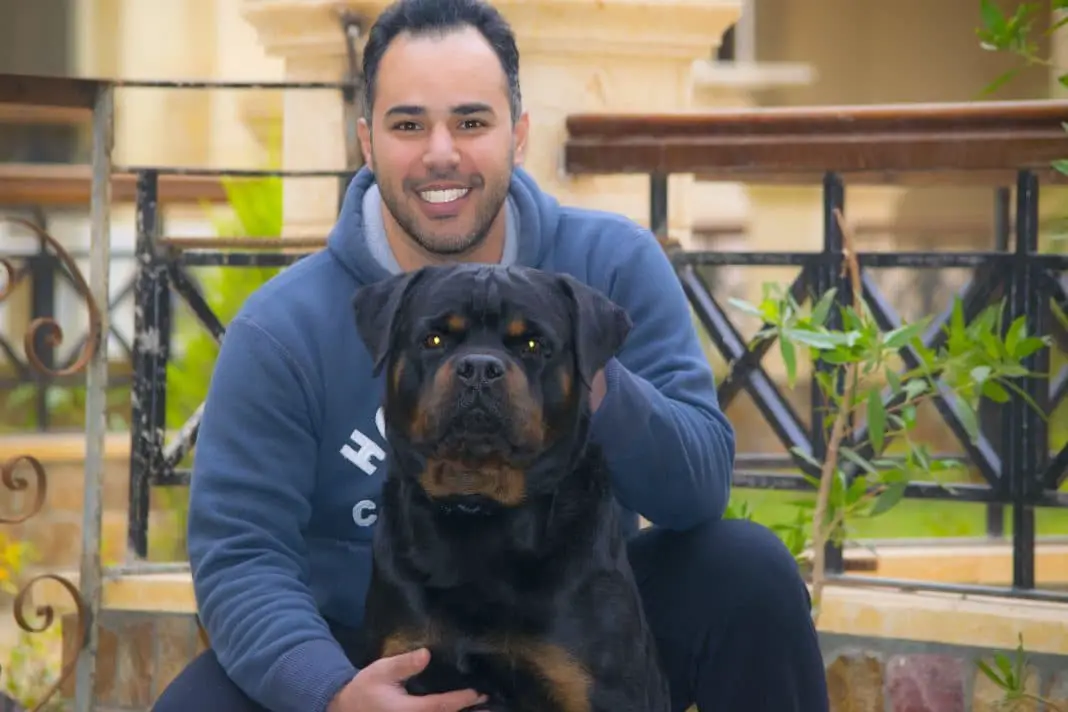Training a Rottweiler puppy can be frustrating and even harder if you are not getting a young Rottweiler. This article will provide you with some valuable advice to make training your Rottweiler a little easier.
Rottweilers have the uncanny ability to have single-minded focus when something catches their attention. If you get your Rottweiler to focus on you, it will help his behavior.
Refrain from using shock collars and similar training devices. These devices are expensive and do not always work as well as you would expect them to. Plus, shock collars are not positive reinforcement when your Rottweiler is exhibiting proper behavior. The negative training causes negative outcomes.
As your Rottweiler gets better with training, you can start to give him or her more freedom. If you can instill a healthy sense of obedience with an appreciation for your love, you and your Rottweiler are guaranteed to enjoy your time together. Don’t be too lenient all of the sudden though, as this can have a negative effect.
A consistent schedule of feeding and potty-time is very important when house training your Rottweiler. Then you will be aware when your Rottweiler needs to go outside to use the bathroom. Having a set schedule will teach your Rottweiler how to wait until he can go outside for the next potty break.
You need to leash train your Rottweiler. Learning to walk properly on his leash will keep you both safe when you are outdoors.
Exercise your Rottweiler for at least an hour each day in addition to regular outside potty breaks and training sessions. When your Rottweiler is worn out, his behavior will be better. Rottweilers that exercise are happier and more responsive.
Avoid accidents when potty training your Rottweiler. Learn the signs that your Rottweiler needs to use the restroom. If your Rottweiler is pacing or whining, you need to take them outside. When you see this, don’t delay. Get out the leash and head for their designated potty area. Give him praise for his behavior. Before long, he will be able to ask you to take him out.
Training your Rottweiler requires you to be firm and authoritative. Avoid yelling at your Rottweiler. It is important to be firm when issuing a reprimand and someone who adores them otherwise. This will help you build a great relationship with your pup.
Vary your tone of voice when going through training sessions. Your Rottweiler should be able to distinguish between varying tones you use for praise, commands and corrections. Speak sharply and firmly, and be louder when correcting.
Training your Rottweiler can be challenging, but never give up. Frequent reinforcement is the only way to help your pet maintain new behaviors and actions. Training never ends. It is an important part of taking care of your Rottweiler.
Challenge your Rottweiler to try new things and maintain the old things. Even if you are sure your Rottweiler is remembering everything you’ve taught him, having him demonstrate with a little “pop quiz” will keep him sharp.
Treats are usually the best way to get pets to listen well when you start out your training program. Once he gets used to this system, cut down on the frequency of treat-giving until you’re only giving him a treat occasionally.
If you happen to be concerned with the Rottweiler’s agility, take some time to research various breeds and find the one you prefer. While virtually any Rottweiler can do agility, some breeds – like German and Australian shepherds – truly excel at it.
Use all the resources out there, like magazines books and television when you are training your Rottweiler. Talk to those who have the same kind of Rottweiler you do, and get suggestions. Create custom training for your Rottweiler’s special needs.
Reinforce positive behaviors as you train your pet. Rather than scolding or punishing your Rottweiler in response to an undesirable behavior, avoid reinforcing it. Negative enforcement might just make your Rottweiler scared of you. Positive reinforcement makes your Rottweiler want to listen and obey.
Introductions to new Rottweilers or any other animals should occur slowly and carefully. Before deciding to adopt a new pet, consider how it will affect the pets you already have. Any new animal that you introduce into your home should have a demeanor and personality that is closely compatible with that of your current pet.
You need to keep it real about what you expect from your Rottweiler If prior owners or you yourself have permitted your Rottweiler to lounge on your furniture or climb on humans for a long time, it may be difficult to adjust their behavior. A Rottweiler who is trained early in life will be more receptive to training and development.
If you’re going to allow your Rottweiler the chance to go bathroom inside, make sure there is a dedicated area for this. Use potty pads and slowly move them around or eliminate some as you see fit.
Something you could do is put a toy in the Rottweiler’s mouth and keep it there. When he does pick up and hold a toy in his mouth, reward him with a treat. After doing that a few times, stop until the Rottweiler takes the toy in his mouth. When the toy is in his mouth, use the clicker and give a reward. As he gets even better, only give him a reward for holding the plushie in his mouth for a few seconds.
An obedience class is a great idea for getting you and your Rottweiler on the same page. The instructors at these schools are trained to deal with a variety of different Rottweilers, even the impossible cases. They can teach a Rottweiler to follow commands, heel on a leash and to stop any unnecessary barking.
Rottweilers learn through repetitive technique and by giving them rewards. You need to make sure your Rottweiler understands what the expected behavior is, be consistent in your expectations and practice the behaviors daily. This is the most efficient way for your Rottweiler to learn anything new. Reward and repetition is the key.
By learning these tips, your Rottweiler will end up more confident and more calm. Put this information to use today and see firsthand just how much easier it is to train your Rottweiler



